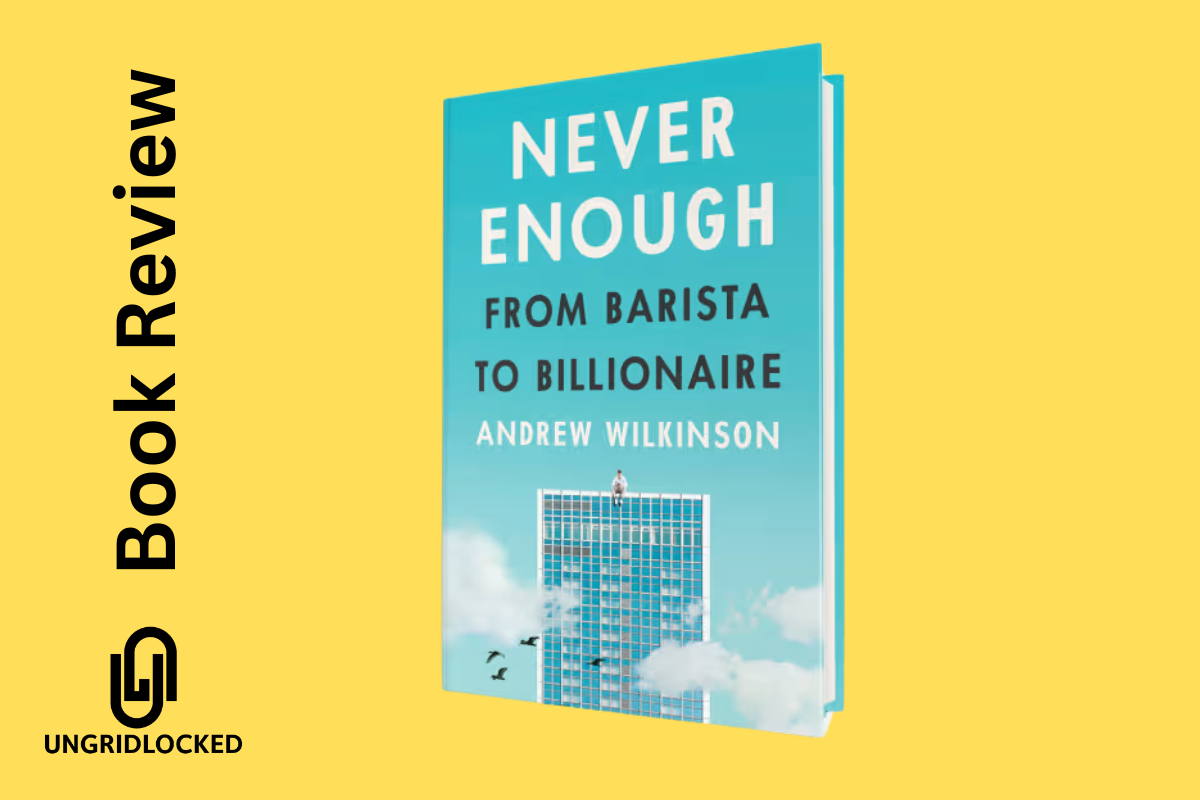This was one of my favorite business reads of 2024 because it was a deeply personal and raw memoir that was littered with sound (and hard-fought) business advice by Andrew Wilkinson.
I previously wasn’t familiar with Andrew or his story but happenstance caught a podcast titled “The Lazy Millionaire: I Own 40 Companies, But Don’t Run Any Of Them” (don’t be fooled by the title, it’s actually fascinating) and the few takeaways I heard were business gold.
So naturally I started to follow him on social media and saw he was about to release his first book.
In “Never Enough” he explores the complex relationship between wealth, success, and personal fulfillment. He discusses how childhood experiences and early beliefs shaped his relationship with achievement, money, and self-worth.
Later on, Wilkinson reveals that despite reaching significant financial milestones, he continued to feel a persistent sense of “not enough” – a feeling that many successful people can relate to regardless of their level of achievement.
His business story is interwoven with his personal story with injections of insightful business lessons including:
Capital Allocation Principles
Wilkinson emphasizes the importance of capital efficiency and smart allocation. He shares his strategy of buying profitable, stable businesses rather than focusing solely on high-growth startups. The book details how he built Tiny Capital by acquiring companies with strong fundamentals and existing cash flow, rather than chasing speculative investments. If you read the book, you’ll know that much of his investing and acquisition strategy is derived from his business heroes: Charlie Munger & Warren Buffett.
The Power of Boring Businesses
One of the book’s key messages is that unsexy, stable businesses often make the best investments. Wilkinson explains how he found success by focusing on established businesses in traditional industries, rather than chasing trendy tech startups (although he did dabble in some of those, too). He emphasizes looking for businesses with proven revenue models and sustainable competitive advantages.
Management Philosophy
In regards to being a “lazy CEO” he appoints capable leaders over all his companies and his management philosophy includes:
- Giving managers significant autonomy
- Focusing on long-term value creation rather than short-term metrics
- Maintaining lean operating structures
- Avoiding unnecessary meetings and bureaucracy
- Emphasizing profitability over growth at all costs
One of my favorite principles from the book is “Mortal Wounds vs. Flesh Wounds” which meant he had a degree of tolerance for the CEOs of his companies to make flesh wounds which were recoverable mistakes that would create learning experience. Mortal wounds, on the other hand, were such that could destroy or bankrupt a business and those were the times he got involved in the decision-making. To this day I create room for my kids to make “flesh wounds” in the business we own because it results in valuable scar tissue.
His rags-to-riches story is also deeply relatable as he grew up in a middle class family and found success by creating opportunities that are readily available to many of us.
It’s a particularly relevant read for entrepreneurs, high achievers, and anyone struggling with the balance between ambition and personal well-being. I have personally recommended this book to several business owners in my circle because there are some profound and relevant business principles I’ve yet seen in other business books.
There are few business books out there that are page-turners, “Never Enough” is one of them.

